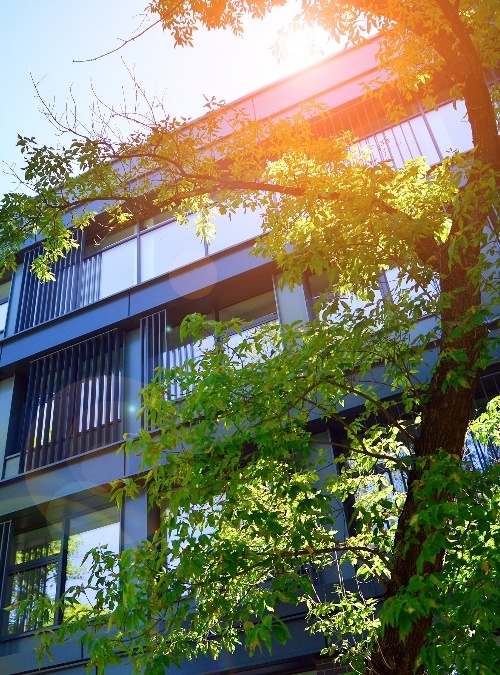
From energy certificates to zero-emission buildings
Montenegro and Albania have both made bold steps in ensuring energy efficiency, thanks to the support of the Regional Energy Efficiency Programme (REEP). The ‘Policy Dialogue Window’ of this programme, implemented through the Western Balkans Investment Framework, provides targeted support for policy reforms across the Western Balkans, helping beneficiaries to overcome market barriers, foster long-term sustainable growth and achieve decarbonisation targets. This article looks at two ways policy support is driving long-term structural changes in Montenegro and Albania.
Montenegro launches Energy Performance Certificate scheme
Montenegro is setting new benchmarks in energy efficiency by introducing a comprehensive independent quality control system for Energy Performance Certificates (EPCs). This brings the country in line with European directives and demonstrates a strong commitment to improving the quality, transparency, and reliability of such certificates.
The new independent control system was developed between May and September 2025 with support from the European Bank for Reconstruction and Development (EBRD) under the Renewable Energy Efficiency Programme (REEP) Policy Dialogue Window, which provided technical assistance to the Ministry of Energy and Mining.
Montenegro’s approach is organised on three levels: level 1 checks that all certificates are complete and comply with requirements; level 2 ensures a technical review of a sample selected at random; and level 3 covers in-depth on-site inspections, comparing reported data with actual conditions.
The system is designed to detect both minor and major errors, with findings regularly analysed and audited. The operational framework for energy performance certificates is expected to be up and running by early 2026. With these developments, Montenegro can make better policy decisions, reducing energy costs for households and helping the country meet its climate targets.
Albania sets ambitious path to decarbonise buildings by 2050
Using the same support for policy reforms in the REEP programme, Albania concentrated on its aim to decarbonise the building sector by 2050. Buildings currently account for over a third of the country’s primary energy consumption, making them the largest energy user nationwide. The new Long Term Building Renovation Plan, developed over 11 months, sets out a clear roadmap to reduce greenhouse gas emissions, improve energy efficiency, and modernise residential, public, and commercial buildings.
A key focus of the strategy is on the country’s “worst performing residential buildings”—those constructed before 1990, which make up about two-thirds of the occupied residential building stock. These buildings typically suffer from inadequate insulation, inefficient windows, and outdated heating systems. The plan aims to ensure that all such outdated buildings are either upgraded to meet modern standards or replaced by zero-emission buildings. The impact on households will be significant, with savings of 60 to 95 percent expected.
Albania’s long-term goal is to renovate or construct over 580,000 residential, public and commercial buildings as zero-emission buildings by 2050. This ambitious €25 billion effort is expected to cut Albania’s primary energy consumption by 15%, reduce energy imports by up to 28%, and create more than 30,000 jobs. Households will benefit from lower energy bills, improved comfort, and increased property values, while Albania moves closer to its climate commitments.
The Long Term Building Renovation Plan should be adopted by the end of 2025, underscoring the country’s commitment to modernising its building stock, reducing energy consumption, and achieving climate targets in line with European standards.
___
About REEP
Launched in 2013 under the Western Balkans Investment Framework (WBIF), the Regional Energy Efficiency Programme (REEP) supports renewable energy and energy efficiency investments across the region. With over €1 billion mobilised to date, it has refurbished more than 90 public buildings, supported 1,500 SMEs and 20,000 households. The achieved annual CO₂ emissions saved is equivalent to removing 183,000+ cars from the roads.
___
About WBIF and Global Gateway
The Western Balkans Investment Framework (WBIF) contributes directly to Global Gateway, the EU’s strategy to boost smart, clean and secure connections in digital, energy and transport, while strengthening health, education and research systems worldwide. Global Gateway aims to mobilise up to €300 billion worldwide in investments through a Team Europe approach, bringing together the EU, its Member States and financial institutions to leverage investments for a transformational impact.